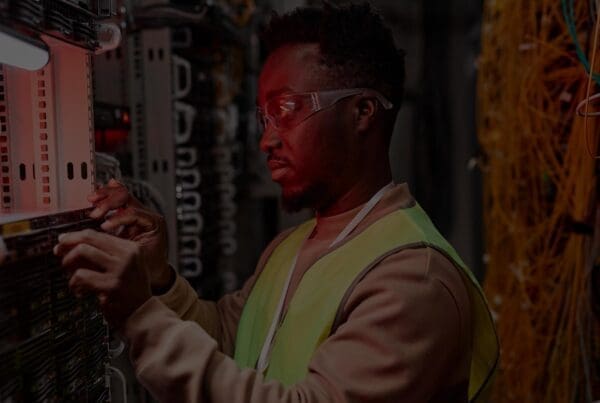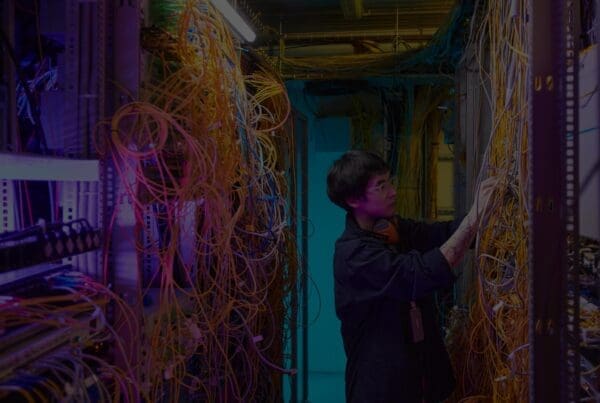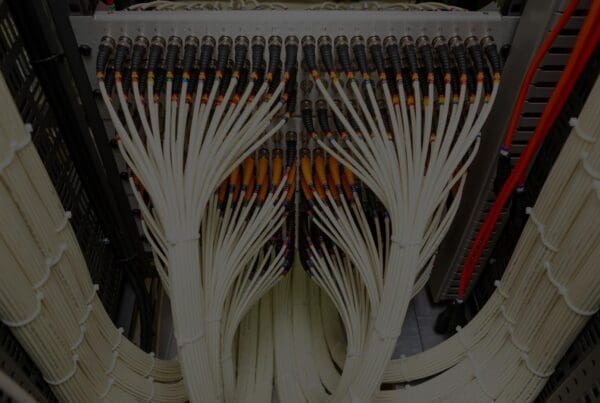In the wake of the burgeoning fibre industry, there has been a marked surge in the demand for proficient fibre Engineers. As the world continues its relentless march towards a more connected future, these professionals stand at the forefront, weaving the very fabric of our digital age.
But how does one break into this promising field? Or if you’re an employer, how do you discern the genuinely skilled from the novices? The answer often lies in the fibre engineer interview questions posed during recruitment. These questions, tailored to unravel a candidate’s depth of knowledge and experience, are pivotal. They not only assess technical proficiency but also gauge how a potential hire might fare in real-world challenges.
This article aims to provide an exhaustive insight into the most pertinent fibre engineer interview questions to expect in 2023. Whether you’re an aspiring fibre Engineer gearing up for your next big interview or a recruiter keen on refining your questioning process, our guide will walk you through common queries, potential responses, and invaluable tips to leave a lasting impression.
1. Understanding the Basics
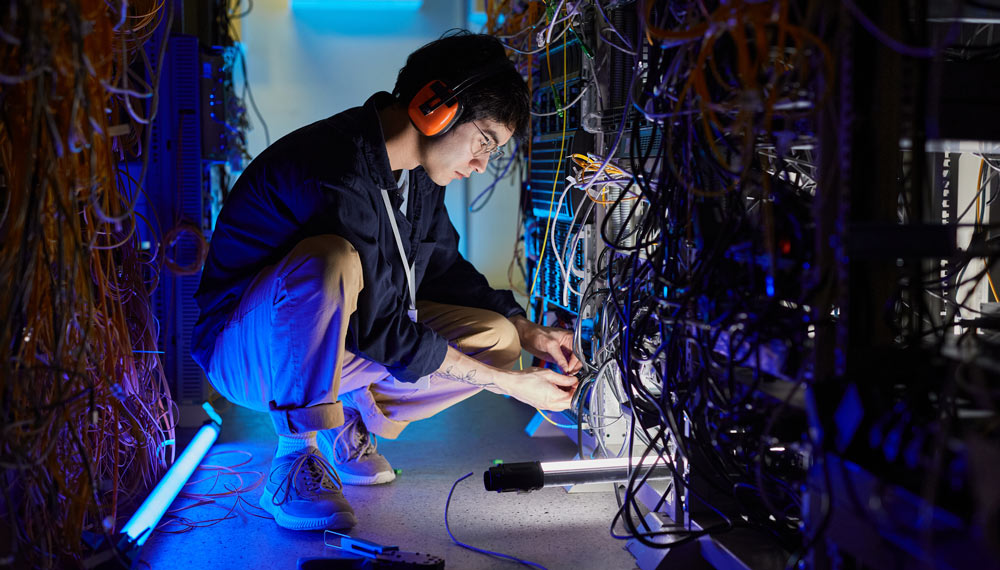
Fibre optics is a fascinating realm, an intricate dance of light and glass that underpins our high-speed digital age. For recruiters, establishing an understanding of these foundational concepts in potential hires is paramount. Below, we delve into some rudimentary fibre engineer interview questions that provide insights into a candidate’s grasp of the subject.
General Questions about Fibre Optics
- How do fibre-optic cables work?
This question seeks to determine a candidate’s fundamental comprehension of how light signals travel through the fibre cable, reflecting off the walls of the cable in a series of zig-zag bounces.
- Can you explain the difference between single-mode and multi-mode fibre cables?
With this query, recruiters aim to gauge the interviewee’s familiarity with the two most commonly used types of fibre cables. While both cables play a role in transmitting data over long distances, their specific uses, design, and data-carrying capacity differ significantly.
The answers to these elementary questions can offer recruiters a glimpse into how deeply an interviewee understands the intricacies of their trade. It’s not just about memorising facts; it’s about understanding the very essence of fibre optic technology.
2. Tools and Equipment Familiarity
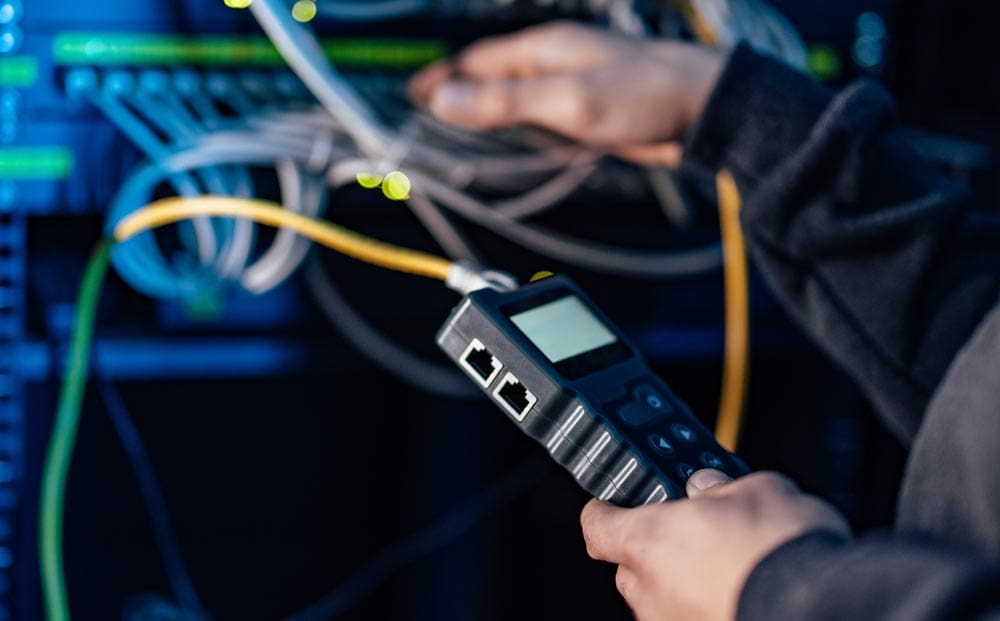
When it comes to the day-to-day tasks of a Fibre Engineer, having proficiency in using various tools and equipment is non-negotiable. Mastery of these instruments not only ensures efficient and effective job completion but also underlines an engineer’s commitment to their profession. Let’s explore some typical fibre engineer interview questions focusing on tools and equipment:
- Which tools are essential for a Fibre Engineer? Why?
This question aims to discern whether the candidate is well-acquainted with the crucial tools in fibre optics, such as optical power meters, fault locators, or fusion splicers. Their response can indicate their hands-on experience and understanding of the tools’ significance in ensuring precise and safe installations.
- How do you handle fibre splicing and what equipment do you use?
Fibre splicing is a pivotal task, and recruiters will be keen to know if the interviewee is adept at both mechanical and fusion splicing techniques. Their choice of equipment, like specific fusion splicers or cleavers, can further demonstrate their expertise and familiarity with industry best practices.
3. Technical and Scenario-based Questions

The world of fibre optics is layered with complexities. While foundational knowledge is imperative, the real test often lies in applying this knowledge in real-world scenarios. These fibre engineer interview questions aim to delve deeper, assessing the candidate’s technical acumen and problem-solving skills:
- Describe the steps you take to troubleshoot a degraded signal in a fibre optic network.
This question probes the candidate’s methodological approach to problem-solving, assessing their understanding of signal degradation causes and their skills in using diagnostic tools.
- How do you ensure safety when working with optical fibres?
Safety is paramount, and an engineer’s commitment to adhering to safety protocols—whether it’s about handling glass shards or ensuring proper cable installations—reflects their professionalism and attention to detail.
- Explain the process of connecting a new building to an existing fibre network.
This question seeks to evaluate the interviewee’s comprehension of network expansion, their planning skills, and their understanding of the integration nuances.
- What are some challenges you’ve faced in previous fibre projects and how did you overcome them?
Every project comes with its set of hurdles. Here, the recruiter is keen to understand the candidate’s resilience, adaptability, and innovation in facing and resolving real-world challenges.
As the fibre industry burgeons, ensuring the recruitment of skilled and proficient engineers is paramount. The right set of interview questions can be instrumental in identifying talent that’s not just technically sound but also embodies the problem-solving and innovative spirit that the industry demands.
4. The Current Landscape of Fibre Optics
Navigating the constantly evolving technological realm requires not just hands-on skills but also an analytical mind that stays abreast of current trends and anticipates future shifts. The fibre optics industry, in particular, has been in a state of rapid transformation, with innovations emerging frequently. To gauge an interviewee’s keenness on industry developments, here are some pertinent fibre engineer interview questions:
- How do you think 5G will impact the future of fibre optics?
This question seeks to understand the candidate’s perspective on the symbiotic relationship between 5G and fibre optics. It can shed light on their grasp of the current technological landscape and their foresight regarding industry evolution.
- Can you discuss any recent advancements in fibre optic technology?
This inquiry probes the engineer’s ongoing engagement with the industry. Their ability to discuss recent innovations can indicate their commitment to continuous learning and staying updated.
- How do you keep yourself updated with the latest trends and technologies in the fibre industry?
Regular industry engagement is crucial for any professional. Whether they mention trade journals, seminars, online courses, or industry forums, their sources can reflect their proactiveness in skill enhancement and staying informed.
5. Soft Skills and Situational Questions
Beyond the technicalities, the role of a Fibre Engineer often calls for robust interpersonal skills. Collaborative projects, customer interactions, and team dynamics form an intrinsic part of their professional journey. Hence, fibre engineer interview questions that assess these soft skills are equally critical:
- Describe a time when you had to handle a dissatisfied customer. How did you resolve the situation?
This question is a classic gauge of an engineer’s people skills. Their answer can highlight their patience, empathy, problem-solving approach, and commitment to customer satisfaction.
- How do you prioritise tasks when multiple projects demand your attention simultaneously?
Time management and prioritisation are indispensable in the bustling world of fibre optics. An engineer’s strategy here can provide insights into their organisational skills, stress management, and efficiency.
- Tell us about a time when you had to collaborate with a difficult team member.
Team dynamics can often be challenging. This question seeks to uncover the interviewee’s interpersonal skills, flexibility, and their approach towards conflict resolution.
The intricate blend of hard and soft skills forms the bedrock of an exceptional Fibre Engineer. While their technical expertise ensures efficient project execution, their soft skills ensure seamless collaboration and customer satisfaction. These interview questions, therefore, aim to provide a holistic view of the candidate’s aptitude and attitude.
7. Vision and Career Aspirations
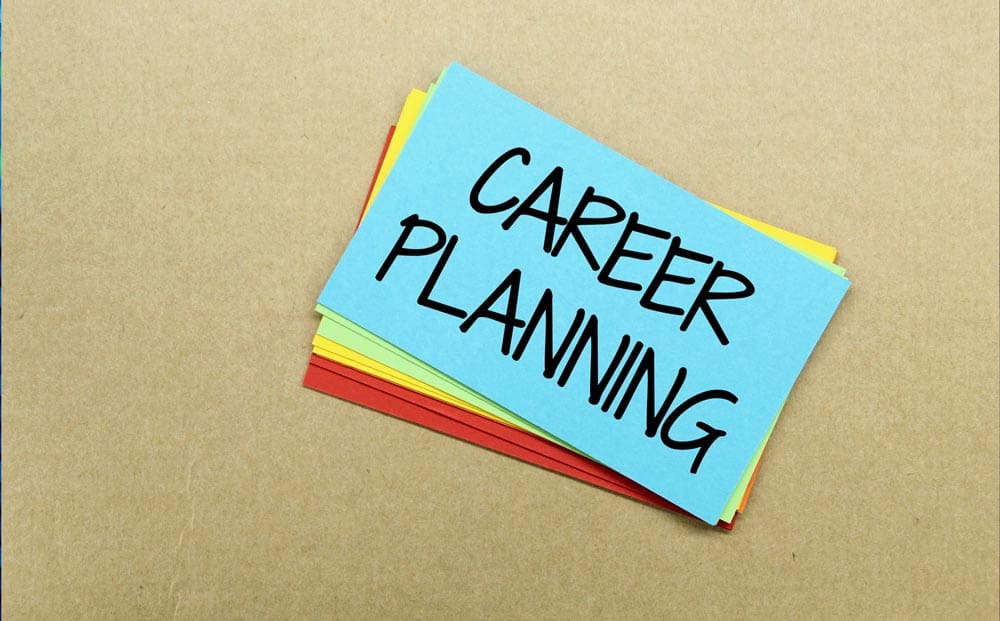
The trajectory of one’s career isn’t just about past accomplishments; it’s equally, if not more, about where one aims to be in the future. A candidate’s vision can often speak volumes about their passion, dedication, and long-term commitment to the field. These fibre engineer interview questions aim to explore that very future perspective:
- Where do you see the fibre industry heading in the next five years?
This question delves into the candidate’s foresight about the industry. Their answer can illuminate how aligned they are with current trends and how adeptly they can anticipate upcoming shifts.
- What motivated you to become a Fibre Engineer, and where do you see yourself in the next decade?
Here, the interviewer gets a glimpse into the candidate’s personal journey and intrinsic motivations. Their vision for the next ten years can also reveal their ambition and commitment to the profession.
- How do you handle continuous learning and professional development in your role?
In an ever-evolving field like fibre optics, perpetual learning is pivotal. This question probes into the methods and resources the engineer taps into to ensure their knowledge remains cutting-edge.
8. Tips for Candidates
Applying for a role as a Fibre Engineer can be an intense experience, especially given the nuanced blend of technical and soft skills the job demands. To help candidates navigate this experience, here are some key pointers:
- Showcasing Hands-on Experience: Practical know-how is invaluable. Ensure that you bring up instances where you’ve applied theoretical knowledge in real-world situations. Whether it’s a challenging project or a novel solution you devised, such anecdotes can be instrumental in underscoring your proficiency.
- Aligning with the Company: Before the interview, delve deep into understanding the company’s ethos, values, and mission. Weaving your answers in a manner that reflects an alignment with these principles can significantly enhance your chances. It not only demonstrates your research but also your genuine interest in the company’s vision.
- Preparing Thoughtful Questions: At the end of most interviews, you’ll have the chance to ask questions. Use this opportunity wisely. Craft questions that showcase your enthusiasm for the role and your eagerness to contribute meaningfully. Whether it’s about the company’s stance on a particular technology, their plans for the future, or the challenges they foresee, your queries can reflect your keenness to engage deeply with your potential role.
- Interviews are not just about showcasing skills; they’re equally about demonstrating fit, passion, and a commitment to growth. By preparing thoroughly and approaching the process holistically, candidates can significantly enhance their chances of success.
Conclusion
The future of the fibre industry is promising, and as it continues to expand and evolve, the demand for well-prepared, passionate, and dedicated professionals will only intensify. But remember, while technical prowess is essential, standing out as a candidate often boils down to how you present your experiences, visions, and aspirations in relation to the broader industry landscape.
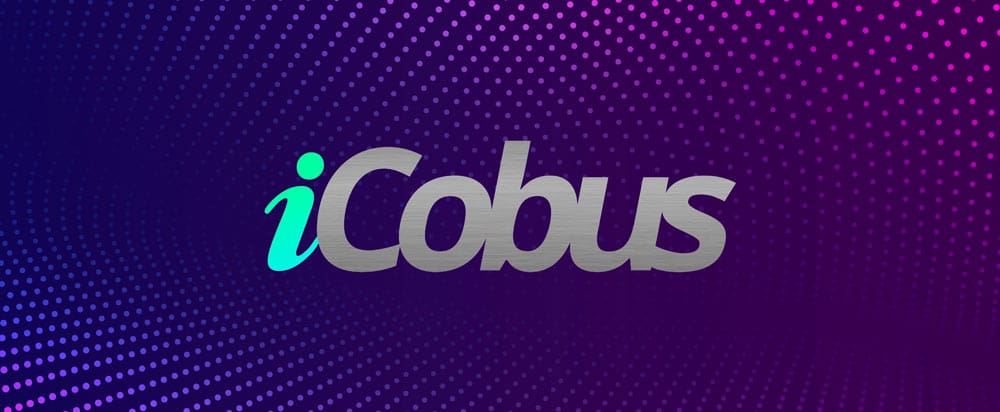
For those looking to make an indelible mark in the field, partnering with industry leaders and professional networks can offer immense benefits. iCobus has been pivotal in connecting talent to opportunity, underlining the importance of aligning oneself with key industry players.

